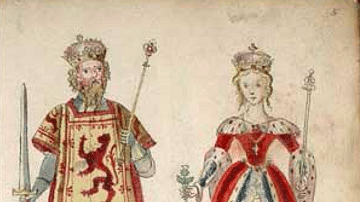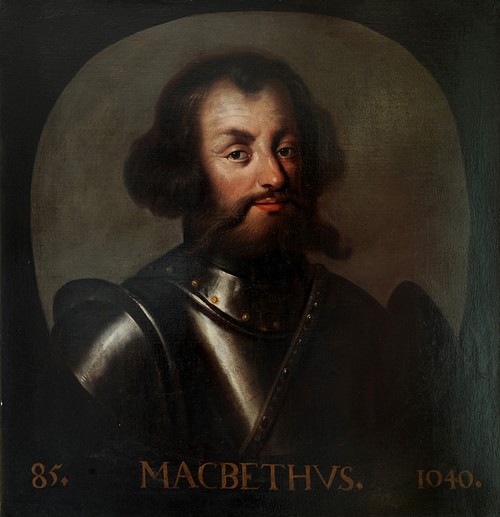
Macbeth Macfinlay (aka Mac Bethad mac Findláig) reigned as the king of Scotland from 1040 to 1057 CE. The ruler of Moray, he took the throne via the battlefield from his predecessor Duncan I of Scotland (r. 1034-1040 CE). Macbeth reigned over a relatively prosperous kingdom, but Scotland's lack of unity proved fatal. The English king Edward the Confessor (r. 1042-1066 CE) joined forces with Duncan I's exiled son Malcolm, and their army defeated Macbeth at Dunsinane in 1054 CE. Macbeth then died in a skirmish with rebels in 1057 CE. He was briefly succeeded by his stepson Lulach (r. 1057-1058 CE) and then by his great rival and cousin Malcolm who became Malcolm III of Scotland (r. 1058-1093 CE). William Shakespeare (1564-1616 CE) made the Scottish king infamous in his early 17th-century CE play Macbeth but the character has little to do with the historical figure, even if he became one of the most memorable of all the playwright's creations.
The MacAlpin Dynasty
The Celtic MacAlpin Dynasty had ruled Scotland since the 9th century CE with their founder being Kenneth MacAlpin (also spelt Cinaed mac Ailpin or mac Ailpein, r. c. 842-858 CE). Scotland as a country was, as yet, a vague idea, but the people called themselves 'Scots' and the boundaries of the area in which they lived in the northern British Isles was similar to what we today would recognise as eastern and southern Scotland. During the MacAlpins' rule, the succession of a new king had always been a problem since male relatives competed to inherit the kingship. In addition, the kingdom of the Scots, or Alba, as it is sometimes known, was as yet far from being unified.
Duncan I of Scotland (aka Donnchad ua Maíl Choluim) was born c. 1010 CE and he had inherited the throne via his mother Bethoc, who was the daughter of the previous king, Malcolm II of Scotland (r. c. 1005-1034 CE), the last of the MacAlpin kings. Duncan, whose father was Crinán, lay abbot of Dunkeld, thus founded the House of Dunkeld, which would rule Scotland until the reign of Alexander III of Scotland from 1249 to 1286 CE. There was one interruption to the house's reign, and it was caused by Macbeth Macfinlay (b. c. 1005 CE).
Macbeth & Duncan I
Duncan I attempted to bring the regions of Moray, Caithness, and Sutherland into his kingdom. Unsuccessful with the latter two, the first proved difficult, too. Duncan had an ambitious cousin, Macbeth. Macbeth had royal blood, and he was the ruler (mormaer or 'earl') of the region of Moray, a position inherited from his father Finlaech. Moray was then the region of northern Scotland around Inverness. Macbeth's father had been murdered by his two nephews Malcolm and GilleComgain. Macbeth avenged his father, which included burning GilleComgain to death in his own manor, and so he took over Moray in 1032 CE.
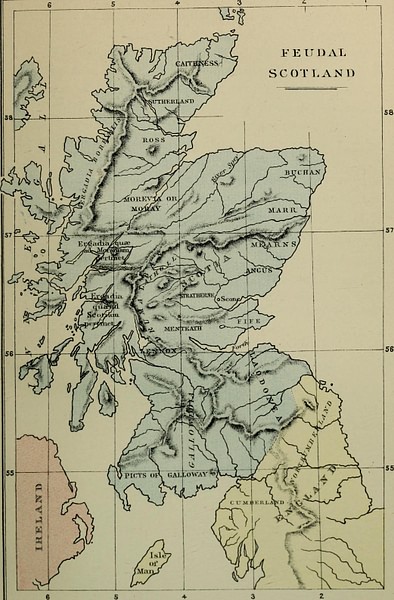
Initially, Macbeth had been loyal to Duncan, but the latter's defeats on the battlefield in trying to expand his kingdom presented a window of opportunity. The king's popularity amongst his allies was particularly hit by an unsuccessful raid on Durham in northern England in 1039 CE. There was another reason besides incompetence and unpopularity for Macbeth to disfavour his king. Around 1032 CE, Macbeth married Gruoch, the granddaughter of Kenneth III of Scotland (r. 997-1005 CE). Gruoch had been previously married to GilleComgain and so the marriage to Macbeth helped to simmer down that particular family feud. Kenneth III had been killed in battle in 1005 CE by Duncan's grandfather, Malcolm II. Consequently, there was no love lost between Gruoch and the present king.
Duncan decided to move first and rid himself of Macbeth on the battlefield. However, it was Duncan who was killed in battle at Pitgaveny near Elgin in 1040 CE and so Macbeth took over the throne on 14 August. Meanwhile, Duncan's sons, Malcolm (b. 1031 CE) and Donald (b. c. 1033 CE), fled the country.
Macbeth's Reign
Macbeth's reign is difficult to analyse in detail. As the historian R. Oram notes, "for the whole of his seventeen-year reign we have the merest handful of records of events, many of which are open to widely differing interpretations." (48). The king seems to have been more efficient than his predecessor, and as one medieval chronicler noted, "in his reign there were productive seasons" (Orham, 49). However, Sutherland and Caithness were still under Viking control, and both were an ever-present threat in this period. Nor was the rest of the kingdom yet truly settled as a wholly unified one. Macbeth was obliged to defeat a rebel army led by Duncan I's father Crinán in a battle at Dunkeld in 1045 CE. Crinán did not survive the rebellion.
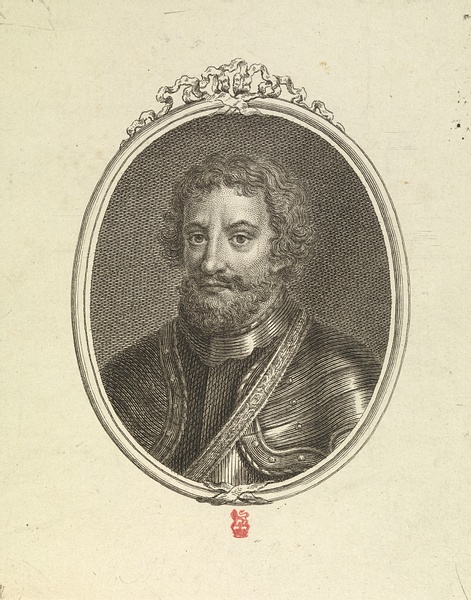
In 1046 CE Macbeth lost a battle against Siward, earl of Northumbria (r. 1041-1055 CE) who had ambitions in Scottish territory. Indeed, Siward's invasion may have resulted in him briefly grabbing control of Lothian and perhaps Strathclyde. Macbeth returned from the north with a larger army and expelled Siward from Scotland at a second attempt. Siward, as it turned out, saw the defeat as but a temporary setback.
Macbeth was known as a generous patron of the medieval church, an important source of support for medieval kings (and a good way to get the chroniclers on his side since they were typically monks). In 1050 CE Macbeth went on a pilgrimage to Rome, an indicator of how Roman Catholicism was well on the way to superseding Celtic Christianity. The Scottish king was said to have been very generous to the poor during his trip as, according to one chronicler, he "scattered money like seed" (Cannon, 123). The trip to Rome is strong evidence that Macbeth had a firm grip on his kingdom if he was able to leave it in the hands of deputies for many months.
The Threat from the South
Back home, the Scottish king faced worsening problems as the 1050s CE wore on. He had to deal with regular incursions in the north from Earl Thorfinn of Orkney (d. c. 1065 CE). Macbeth's main enemy, though, came in the form of Duncan I's son Malcolm, often called Malcolm Canmore ('Great Head' or 'Chief'), actually a cousin of Macbeth. Following his father's death, Malcolm had been taken to safety in Northumberland across the border with England. The English king Edward the Confessor joined forces with Malcolm and Siward, earl of Northumberland. It is likely Edward wanted to use Malcolm as a puppet ruler of Scotland. Accordingly, an English army invaded Scotland in 1054 CE and relentlessly moved northwards causing great destruction and misery along the way. Macbeth raised an army which included mercenary Norman knights exiled from England. Macbeth was able to put an end to the invader's plundering of the lowlands, but he lost the battle of Dunsinane (in Perthshire) on 27 July, even if it was not a decisive result for either side. Macbeth had seen off Malcolm, but he lost control of Perth and Fife.
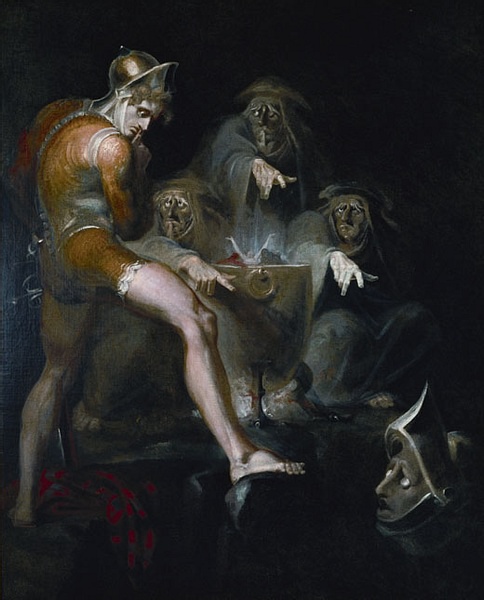
In 1057 CE, Macbeth's fortunes plummeted even further. On 12 August he won a skirmish at Lumphanan (Aberdeenshire) against a group of Malcolm's supporters but was badly wounded and he died three days later. In some versions of the confused events which followed, the ex-king's head was paraded on a pike but his body was possibly later buried on the island of Iona in the Inner Hebrides, a location with a long historical association with legitimate Scottish rulers.
Death & Successor
Following his demise, Macbeth was briefly succeeded by his stepson Lulach (b. c. 1032 CE) and then, from 1058 CE, by his cousin who became Malcolm III of Scotland. Malcolm had had Lulach murdered in an ambush at Essie in Strathbogie. As the son of Duncan I, he thus restored the Dunkeld line as the rulers of Scotland. Malcolm's long reign would see an increase in Anglo-Saxon influence in Scotland when he married an English princess, Margaret, and invited English monks and priests into his kingdom.
Macbeth, meanwhile, became the title figure of a celebrated play by William Shakespeare. Macbeth was first performed around 1606 CE, and the Bard makes Duncan I a wise old grey-bearded man, even if he was really only around 30 years of age when he died and noted for his immaturity. Shakespeare also imagined Macbeth as a murderous villain influenced by supernatural visions and so created one of the most infamous of all fictional kings. Neither is Shakespeare's scheming Lady Macbeth based on any real historical facts except her name. Nevertheless, Shakespeare has ensured that a relatively obscure Scottish king has become one of the country's most well-known, at least in name if not deeds.
